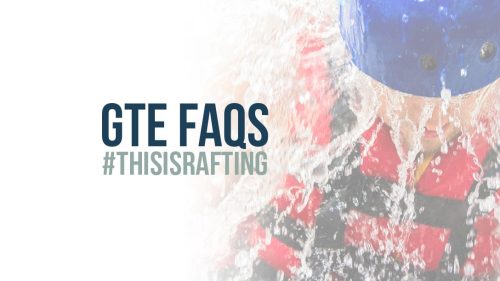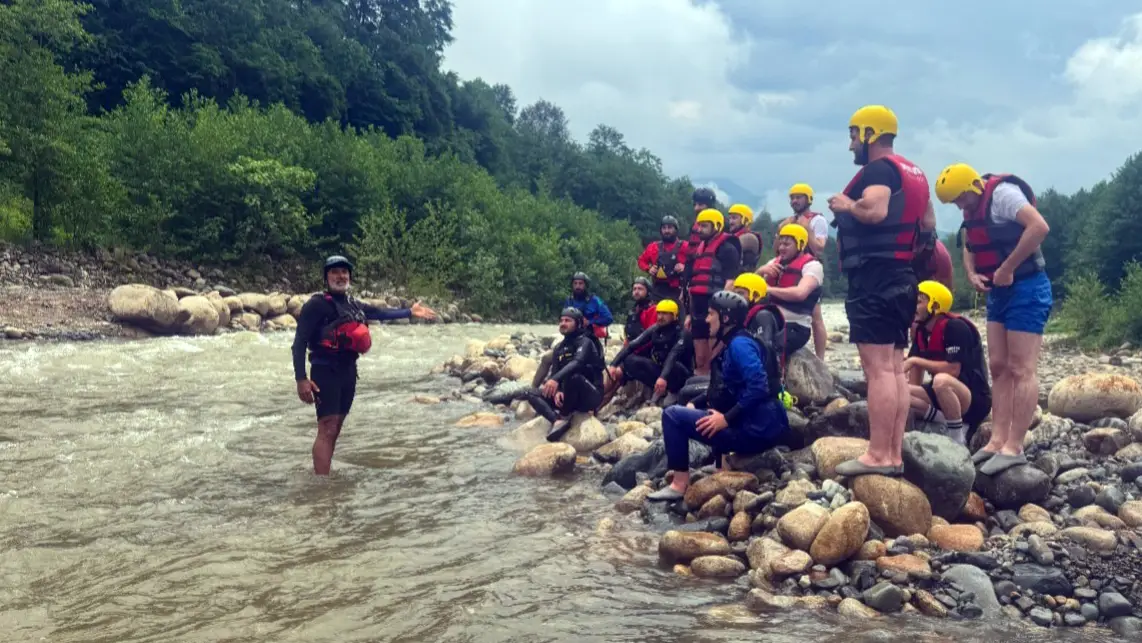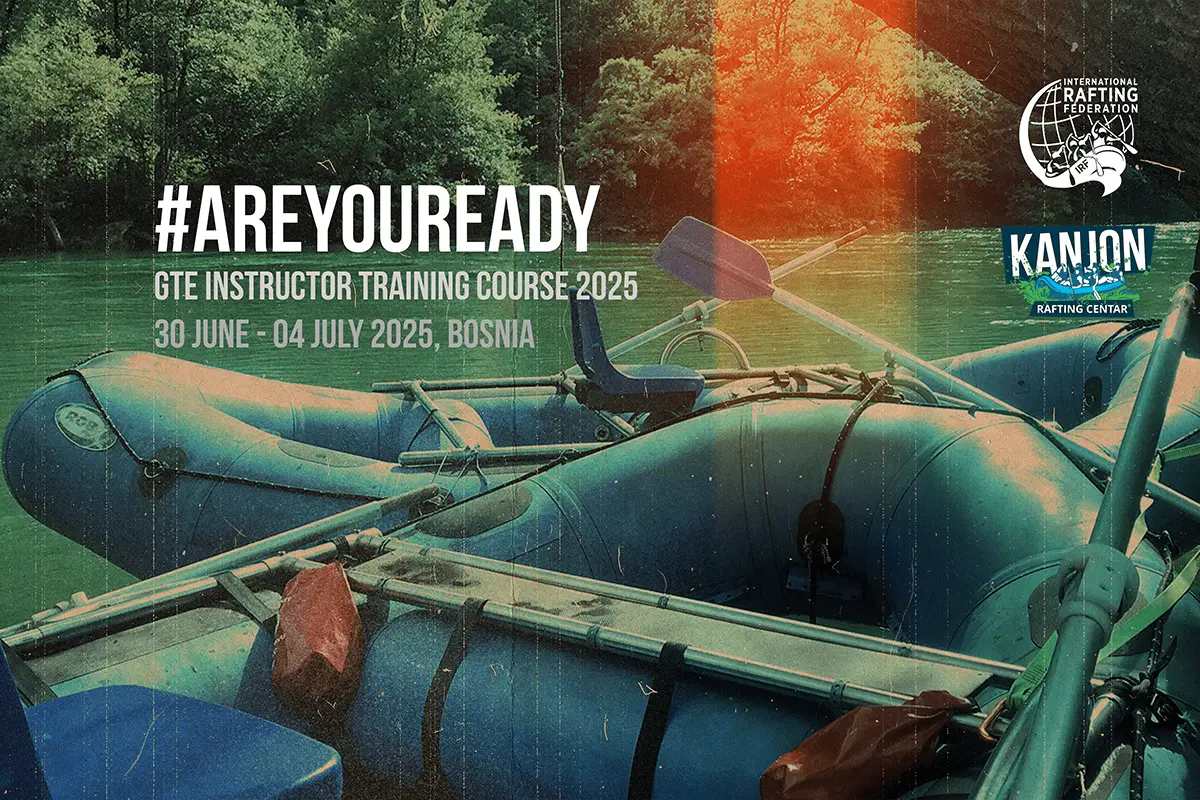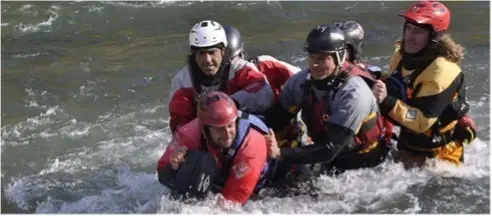IRF GTE FAQs
What is the IRF and the Guide Training & Education (GTE) system?
The International Rafting Federation (IRF) is the globally recognised legitimate body that represents the sport of rafting and river conservation. It also organises the world rafting championships each year. The Guide Training & Education (GTE) program operates from within the IRF.
The aim of the GTE system is to increase safety in rafting worldwide. This is accomplished through a system of personal competence awards that ensure a minimum set of global safety standards for whitewater rafting. Learn more about IRF GTE Awards.
Is the GTE an instructional course or a test of my abilities?
GTE workshops are predominantly a test of your guiding ability. We want to promote current best global standards so there will be a lot of new techniques and open discussions. GTE workshops are open to guides, trip leaders, and safety boaters with previous experience.
The workshop will address any areas of your guiding skill set that may need improvement. By having an instructor observe your skills you are opening yourself to learn current global best practices.
Do rafting operators require me to have IRF GTE certification?
Some do and some don’t. The IRF GTE certification is a statement of competence that is recognised and accepted in over 50 countries worldwide. For any guides wishing to travel internationally, the IRF awards are a useful resource when applying for work.
What is the structure of the GTE Award System?
The GTE system has seven designations:
- Guide – responsible for guiding a raft as part of a rafting trip
- Safety Rafter – responsible for providing a rescue platform during a rafting trip
- Safety Kayaker – responsible for providing a rescue platform during a rafting trip
- Event Safety Technician – dedicated to providing safety cover at race events
- Trip Leader – responsible for the overall running of a commercial trip
- Instructor – responsible for educating & assessing guides & trip leaders
- Assessor – responsible for assessing instructors
Each designation from guide to instructor will have its own restriction. In total there are six restrictions:
- Site specific: Allows guides to only guide rafts on artificial courses or specific sections of rivers with very little flow change
- Provisional: given when a candidate is still missing a certain aspect of the criteria e.g. more experience needed to pass the throw bag test
- Level 2: candidate has been assessed on grade 2 whitewater & has demonstrated all skills needed to operate on a grade 2 whitewater trip
- Level 3: candidate has been assessed on grade 3 whitewater & has demonstrated all skills needed to operate on a grade 3 whitewater trip
- Level 4: candidate has been assessed on grade 4 whitewater & has demonstrated all skills needed to operate on a grade 4 whitewater trip
- Level 5: By Application only. The candidate has suitable experience & knowledge to guide on grade 5 whitewater
What do I need to pass an assessment?
Attend an IRF GTE workshop. During the workshop you will perform some practical tasks. The areas in which you will be assessed will vary depending on which award you are being assessed for e.g. to be assessed as a grade 3 raft guide all of the skills listed below must be demonstrated on grade 3 water.
During a typical guide assessment you can expect to demonstrate competence in:
- Pre-departure safety demonstration/talk
- Raft guiding & river running skills
- Personal whitewater swimming skills
- Throw bag rescue skills
- Rope work skills
- Flip drill test
- Multiple choice exam
For each task you will be given a score of between 1-5 points:
- 1 Points = Poor (Not a pass)
- 2 Points = Weak (Not a pass)
- 3 Points = Satisfactory (pass)
- 4 Points = Good (Pass)
- 5 Points = Excellent (Pass)
What are the safety raft and safety kayak assessments?
The role of the safety kayaker/rafter within in a whitewater rafting trip is a specialist skill set that requires additional rescue skills and river running skills in order to operate on a standard tour rafting trip. The safety kayak/raft assessments are normally added to a GTE workshop to allow students to gain extra valuable rescue training and potentially pick up another IRF award if they can demonstrate the competence.
What are the minimum requirements needed to hold & maintain an award?
The minimum requirements needed to hold an IRF GTE award are:
- Be a minimum of 18 years of age
- Be able to swim and physically capable to work on a rafting trip
- Hold a valid IRF recognised first aid certificate that must include CPR
- Maintain a current logbook of rafting experience
- Pay $30.00 USD every 3 years to renew your award
What do I get?
A detailed feedback report after the assessment leaving you with a clear pathway to your future development – regardless of the outcome of your assessment.
If your assessment is successful, once your IRF award fee has been processed you will receive a digital PDF certificate emailed to you.
You will then be listed on the publicly available IRF GTE list of qualified guides.
All IRF awards are valid for 3 years when supported by a valid IRF recognised first aid certificate.
Are there any other benefits to joining an IRF GTE workshop?
Yes. IRF workshops attract guides from all over the world from a variety of rivers and operations. This gives students on each workshop the opportunity to learn current best global practice and share ideas with others from around the globe.
Further reading?
- Download a PDF version of the IRF GTE FAQs
- Read full details of the GTE certification requirements, processes and fees
- Find a course running near you (this is the list of all approved IRF GTE courses)
- Learn official river signals
- See details of all currently certified raft guides, trip leaders, instructors and assessors
Still have questions after reading the GTE FAQs? Get in touch with the GTE Administration team.




